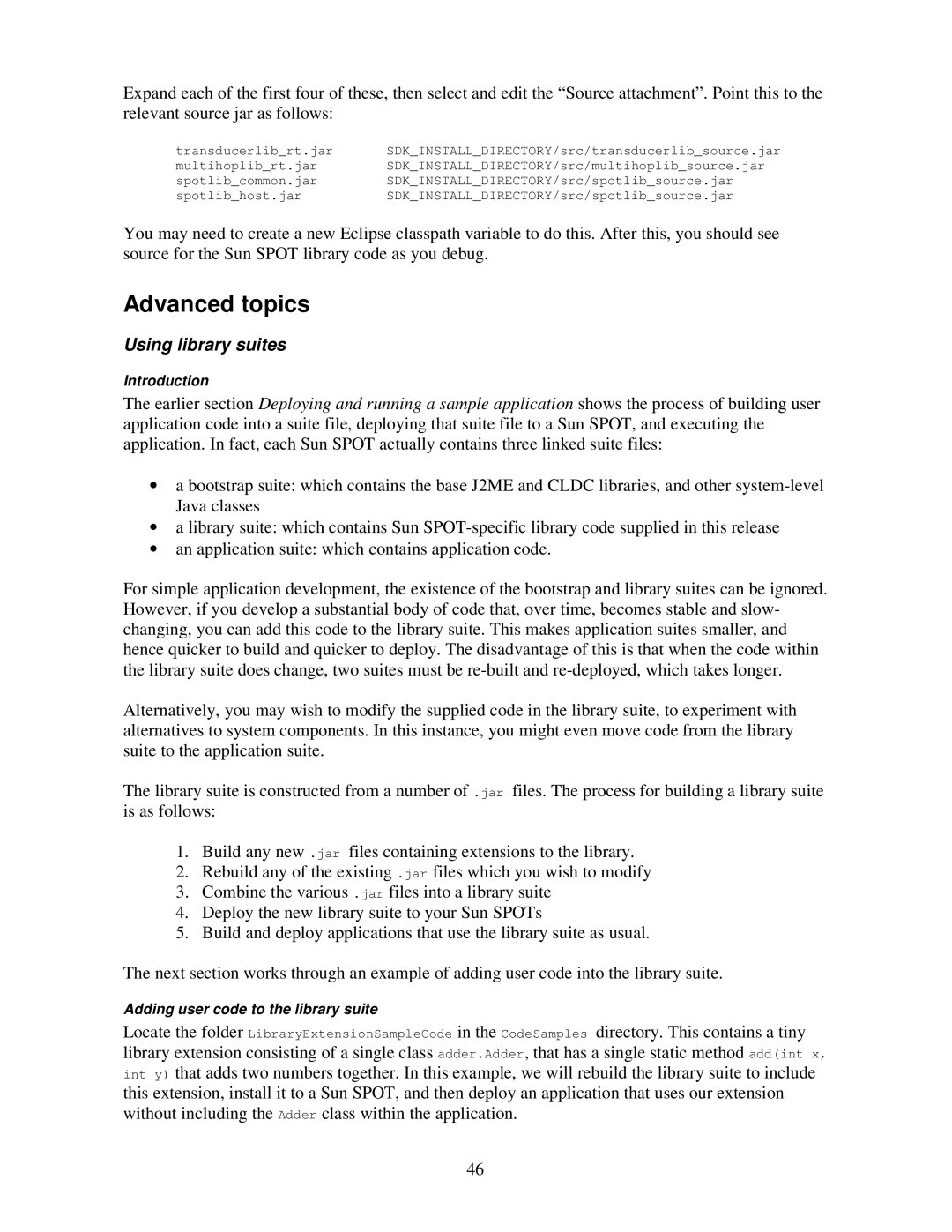Expand each of the first four of these, then select and edit the “Source attachment”. Point this to the relevant source jar as follows:
transducerlib_rt.jar | SDK_INSTALL_DIRECTORY/src/transducerlib_source.jar |
multihoplib_rt.jar | SDK_INSTALL_DIRECTORY/src/multihoplib_source.jar |
spotlib_common.jar | SDK_INSTALL_DIRECTORY/src/spotlib_source.jar |
spotlib_host.jar | SDK_INSTALL_DIRECTORY/src/spotlib_source.jar |
You may need to create a new Eclipse classpath variable to do this. After this, you should see source for the Sun SPOT library code as you debug.
Advanced topics
Using library suites
Introduction
The earlier section Deploying and running a sample application shows the process of building user application code into a suite file, deploying that suite file to a Sun SPOT, and executing the application. In fact, each Sun SPOT actually contains three linked suite files:
•a bootstrap suite: which contains the base J2ME and CLDC libraries, and other
•a library suite: which contains Sun
•an application suite: which contains application code.
For simple application development, the existence of the bootstrap and library suites can be ignored. However, if you develop a substantial body of code that, over time, becomes stable and slow- changing, you can add this code to the library suite. This makes application suites smaller, and hence quicker to build and quicker to deploy. The disadvantage of this is that when the code within the library suite does change, two suites must be
Alternatively, you may wish to modify the supplied code in the library suite, to experiment with alternatives to system components. In this instance, you might even move code from the library suite to the application suite.
The library suite is constructed from a number of .jar files. The process for building a library suite is as follows:
1.Build any new .jar files containing extensions to the library.
2.Rebuild any of the existing .jar files which you wish to modify
3.Combine the various .jar files into a library suite
4.Deploy the new library suite to your Sun SPOTs
5.Build and deploy applications that use the library suite as usual.
The next section works through an example of adding user code into the library suite.
Adding user code to the library suite
Locate the folder LibraryExtensionSampleCode in the CodeSamples directory. This contains a tiny library extension consisting of a single class adder.Adder, that has a single static method add(int x, int y) that adds two numbers together. In this example, we will rebuild the library suite to include this extension, install it to a Sun SPOT, and then deploy an application that uses our extension without including the Adder class within the application.
46
